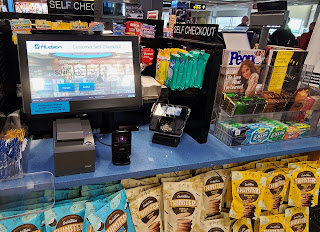If you want social change, a pandemic may be the fastest way to get there.
The classic example is the Great Labor Shift that occurred following the Black Death in the 14th century. In the 1300s, the feudal system was in full swing in Europe. The economy was primarily agricultural with serfs who would be born on an estate, work there their full life, and would then die, often in the same house where they were born. Even though England was never a strictly-feudal country, its workers followed a similar pattern.
The Black Death changed all that. With a death rate of between thirty and sixty percent, the old feudal system collapsed. A worker's skills were then worth far more because labor was a scarce commodity. Freed from the restriction of serfdom, workers moved about in search of the employer who would pay the best wages. The hierarchical bee-hive cultural system began cracking.
We may be seeing something similar happening now. The death toll of the current pandemic is much lower than the bubonic plague (even though the estimated "excess deaths" of 20 million is not inconsequential). But the often-misguided governmental policies of shutting down economic systems may have severely and permanently crippled the labor market -- just as did the Black Death.
There are lots of theories why workers, during the past year, have not rejoined the labor force and why some workers are continuing to leave work. Available jobs still outstrip the number of people looking for work. And some types of jobs (especially in the customer service field) look as if they may never be filled.
That presents a problem for businesses. Customers still want to purchase what they want to purchase -- and businesses still stock the things the customers want to purchase. The weak link is finding employees who can link those two desires. If people are not available for those jobs, there are solutions.
Here is an example from my travels. Hudson News Stores are a staple of North American airports. You probably have patronized them. They are the type of stores that stock a wide range of travel needs and an even wider array of snacks that no one would eat except while away from the rationality of home.
One thing all Hudsons have in common is long lines of anxious flyers trying to grab that Godiva dark chocolate candy bar before the door on their flight to Boston closes. It is not an experience for the patience-challenged.
In response to the labor shortage, Hudson has now set up self-checkout stands, complete with a scanner and a credit card reader. The process takes no more talent than filling your car's tank with gasoline.
I love using the system. It takes less of my time than standing in line between two passengers about to suffer meltdown because of circumstances they cannot control. I can usually be in and out of a Hudson these days in a matter of seconds, giving me more time to get in my steps in the terminal.
There are people who do not like self-checkout. Some feel uncomfortable being cashiers and baggers. Others are concerned that self-checkout stands reduce employment. I am sensitive to that last argument.
But being sensitive to it does not change the economic realty that we are in another great labor shift. Some jobs will be permanently mechanized because there will not be sufficient workers to fill them.
That process began years ago. I now regularly encounter touch screens in fast food joints where nary a human can be found. The one that surprised me most was in Antigua, Guatemala -- hardly a country with a labor scarcity. The new system appears to be far more efficient.
I am not entirely pleased with that result because I learned invaluable skills about relating to people when I worked the register at McDonald's as a high school student. Young people will now need to learn those lessons elsewhere.
Even though self-service is spreading throughout the world, I am going to go out on a very sturdy limb here and predict that the Costalegre is not going to be high on anyone's list to replace waiters, cashiers, and clerks with touch-screen kiosks. We will have the same personal service that draws tourists from in-country and around the world. At least, before the hook shuffles me off to Buffalo.
Now, I need to get back over to Hudson to buy that bag of chili- and chocolate-covered pretzels mixed with mustard-encrusted gummy bears. After all, who will ever know that I bought them?

No comments:
Post a Comment